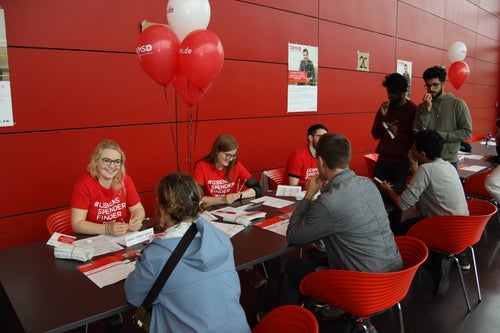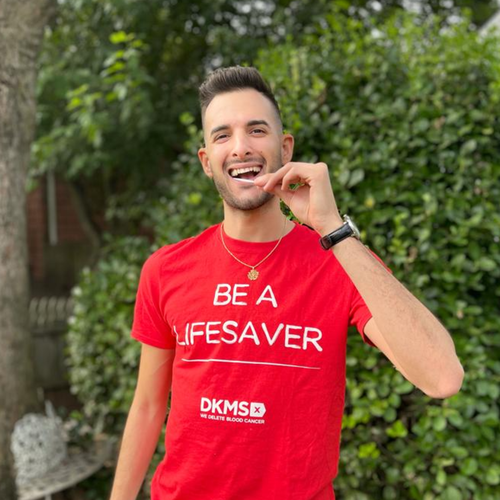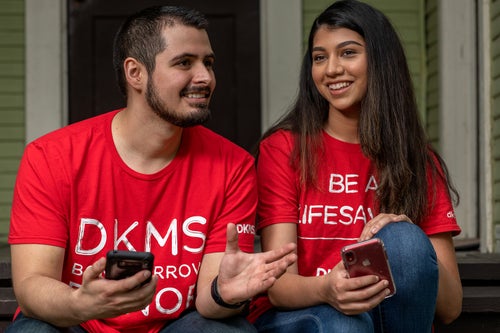Who is NOT ABLE TO register as a blood stem cell donor?
To register with us or to donate blood stem cells, your body mass index (BMI) must not be over 40 – for various reasons.
For people in general good health, donating blood stem cells does not have any significant risks. However, for people with additional risk factors, there may be some health concerns. Unfortunately, obesity is one such risk factor.
Severe obesity poses a problem because it leads to a degree of risk for the donor with both types of blood stem cell collection procedures. Not only is the anesthetic risk higher with bone marrow donations, but with peripheral blood stem cell collection, it is also difficult to gauge precisely how much medication is needed, which may increase the chances of side-effects.
The health and safety of our donors is our number one priority and the weight limits are in place purely for the protection of our donors.
If you have diabetes mellitus type 1, registering as a potential donor is unfortunately not possible due to health concerns for both you and the potential recipient.
Blood stem cells are a part of the immune system, which means that a donation from a type 1 diabetic could mean that the condition is passed on to the recipient. As the patient’s health is already compromised, it is difficult to predict how their condition might develop. Serious complications would be likely to occur.
In addition, increased blood sugar levels may already have damaged the donor’s nerves and blood vessels to varying degrees, and donating blood stem cells could compromise their health even further.
With diabetes mellitus type II, or type 2 diabetes, some cells become resistant to insulin. This prevents them from absorbing sufficient glucose from the bloodstream. Increased blood sugar levels may already have damaged nerves and blood vessels to varying degrees. Donating blood stem cells could compromise their health even further – so again, we cannot include anyone with type 2 diabetes as a potential blood stem cell donor.
Rheumatoid conditions, even when there are no symptoms, are another factor preventing people from registering. They include rheumatoid arthritis, Bekhterev’s disease, and juvenile arthritis, all of which are autoimmune diseases and therefore mean that unfortunately, you cannot register as a blood stem cell donor.
A stem cell transplant involves the transfer of cells from the immune system, and if the donor’s immune system is damaged, it will have adverse effects on the recipient, compromising their health.
(including former patients who have been given the all-clear)
Unfortunately, anyone who has previously had a malignant condition is not able to donate blood stem cells.
If you have ever had a malignant growth (or, to be more precise, one that is not specifically benign) you cannot donate blood or stem cells — no matter how long ago the illness was or how successful the therapy was.
(alcohol, drugs, medications)
Occasional marijuana/cannabis consumption is not an issue – although the emphasis here is on the word ‘occasional’.
This is in part because regular drug use raises the question of reliability. It is not that a donor who takes drugs would be any more likely to suffer any complications, but unreliability is extremely problematic. The timing and scheduling of blood stem cell donations and transplants is crucial to the survival chances of the patient.
For you to register, we need to know what drugs you take and for how long you have been taking them. If you have been consuming them for a long time, it might be better not to register, but if you are ready and able to quit, then you are welcome to join us as a potential blood stem cell donor.
High blood pressure that is successfully regulated or a mitral valve prolapse with no further symptoms do not affect your ability to become a blood stem cell donor. The same goes for people with an unusually high or low resting pulse rate: as long as it is regular, that is all that matters.
However, with most other cardiovascular conditions, requiring treatment or monitoring, the risk of complications when donating blood stem cells is significantly higher. This means that anyone suffering from conditions such as cardiac arrhythmia, damaged vascular walls, arteriosclerosis (especially if blood thinners are needed), heart attacks, strokes, or structural damage to the heart (such as valve defects) is not able to register as a potential blood stem cell donor.
Another factor that would definitely prevent you from donating blood stem cells is frequent or prolonged breathlessness.
If you are being treated for any other conditions, please contact us to check if you can still become a blood stem cell donor.
Due to potential health risks for both the donor and recipient, individuals with Factor V Leiden mutations (heterozygous or homozygous) are ineligible to contribute stem cells to our registry.
If you have a serious, life-threatening infection such as HIV and if there is no way of proving that you are fully cured (e.g. hepatitis C), we cannot allow you to donate blood stem cells, primarily for the protection of the recipient.
Disorders of the blood and immune system are problematic because blood stem cells for transplantation come from the blood-forming and immune systems. To minimize the risk to recipients, both of these systems should be working as normally as possible. When blood stem cells are transplanted, acquired disorders can potentially be transplanted with them, as the cells for transplant contain mature cells of the immune system. In addition, some blood disorders can pose an increased risk to the donor: problems with clotting factors, for example, can cause thrombosis or bleeding.






